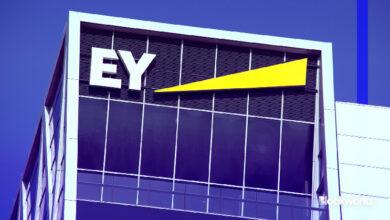Enhancing Mina with Recursive zkRollups: A Deep Dive

In the realm of blockchain, Mina Protocol stands out since its blockchain is fixed in size, and it is based on the idea of a proving system employing recursive zk-SNARKs. With this method, L1 security is guaranteed, and the synchronization process is rapid as if there were a full node. However, the amount of data to handle will be less.
It is not only a layer for smart contracts but also increasingly becomes a hub for zkApps, which are, in fact, many different apps that use unique zero-knowledge features such as modular proofs, extended off-chain computation, and no transaction costs. The significance of the protocol for managing the block space has grown along with the quantity and diversity of these applications. These applications are scalable thanks to recursive zero-knowledge proofs rollups.
The Mina Protocol’s Recursive zkRollups offer unparalleled scalability and flexibility. ZK app chains, stacks, and rollups are the ideal solutions for Mina since they can be scaled to fit any application need. However, these apps have the ability to adjust their pace and capacity based on the flow of traffic. Therefore, instead of utilizing specialist devices that are costly to buy, they may manage higher transaction-per-second (TPS) using standard technology, which is accessible to everyone.
This is the most significant improvement over traditional zkRollups, which can process only a limited number of transactions at a time and can have delays when demand is high, and the network needs more time to process the requests.
Indeed, the principle of zero-knowledge (ZK) allows one to prove the accuracy of calculations as effectively and efficiently as possible. This idea implies that a simple computer may determine whether the calculations performed by more powerful machines are correct without having to repeat the entire operation.
The Mina protocol accomplishes this by utilizing a zk-native Proof-of-Stake chain. At this stage, the network validators do not need to rehash the entire transaction; instead, they validate the transaction’s proof. This is a significant achievement in and of itself because it implies that proof verification is independent of computation size and is completed on time and consistently.
Mina’s zkDSL, o1js, enables developers to write programs that execute specified functions and include execution proofs for those functions. These proofs are composable and frequently combine into one that triggers the state update of a layer-one smart contract. They are all verified with a minimal transaction cost and no gas fees.
In such cases, recursive zkRollups, which require merging multiple transactions into a single proof, perform best, making them effective and an excellent fit. This maximizes the value of each block space purchase, allowing for more transactions per block space.
Unlike non-recursive zkRollups, recursive zkRollups reduce an application’s proof to a single one. Thus, off-chain computation is used to keep on-chain processing costs down.
Consider using Hazook, an open-source Recursive zkRollups proof-of-concept, to help develop the Mina network. Such a technique can handle multiple transactions with a single block buy, which is both quick and efficient.





